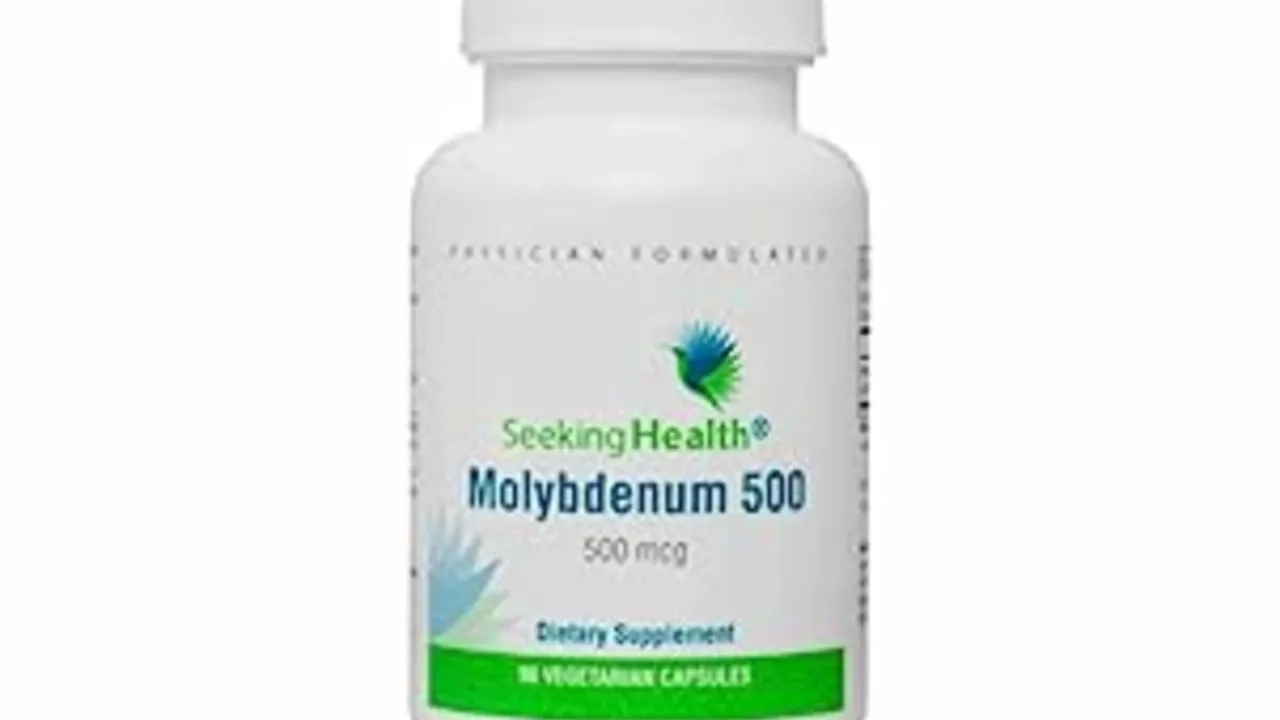Molybdenum: What It Does, Where to Get It, and How Much You Need
Most people never think about molybdenum, but this trace mineral quietly helps your body process sulfur compounds and some drugs. It’s a cofactor for enzymes like sulfite oxidase and xanthine oxidase — big words, simple job: it helps break down certain amino acids and drugs so your body can get rid of them. You don’t need a lot, but you do need some.
Top food sources
If you eat a varied diet you’re probably covered. The richest foods are legumes (lentils, beans), whole grains, nuts, and organ meats like liver. For example, a cup of cooked lentils gives a good chunk of the daily need. Dairy, eggs, and some vegetables add smaller amounts. Cooking and storage don’t wipe it out, so regular meals add up.
Practical tip: swap one serving of refined grains for whole grains and add a handful of nuts during the day — that’s an easy boost without supplements.
How much is enough and when to be careful
Adults generally need about 45 mcg per day. Pregnant and breastfeeding people may need a bit more — often around 50 mcg. The tolerable upper intake level (the max daily amount unlikely to cause harm) is about 2,000 mcg (2 mg) for adults. Deficiency is rare and usually shows up only with long-term intravenous feeding that misses molybdenum, or in very unusual metabolic conditions. Signs can include headaches, mood changes, and problems with sulfur metabolism, but those symptoms can come from many causes — testing is needed to know for sure.
Too much molybdenum can cause trouble by lowering copper levels in the body. That can lead to anemia and nerve problems over time. If you’re taking copper supplements, or have a condition that affects minerals, talk to your doctor before starting molybdenum pills.
Urine tests can measure molybdenum status better than a simple blood test. If you suspect a problem, ask your provider about testing rather than guessing with supplements.
When might a supplement be needed? Mostly when a confirmed deficiency exists, or when a clinician recommends it for a specific medical reason. Most over-the-counter multivitamins include tiny amounts; targeted molybdenum supplements use forms like ammonium or sodium molybdate. Follow the dose on the label and check with your healthcare provider, especially if you are pregnant, nursing, have kidney issues, or take other mineral supplements.
Bottom line: focus on whole foods — beans, nuts, grains, and moderate animal products — to meet molybdenum needs. Supplements are rarely necessary and should be used under medical advice. If you’re curious about testing or worried about symptoms, your doctor or a dietitian can help you check levels and decide what’s right for you.
Molybdenum: The Essential Dietary Supplement for a Healthier You
In my recent blog post, I explored the importance of Molybdenum, a lesser-known but essential dietary supplement. I found that it plays a crucial role in many of our body's biological processes, including metabolic function, enzyme activity, and overall cellular health. Furthermore, a deficiency in Molybdenum can lead to serious health problems, underscoring its importance in our diet. However, it's also key to note that it should be taken in moderation as an excess can also cause health issues. So, in the pursuit of a healthier you, consider the balance of Molybdenum in your diet.
